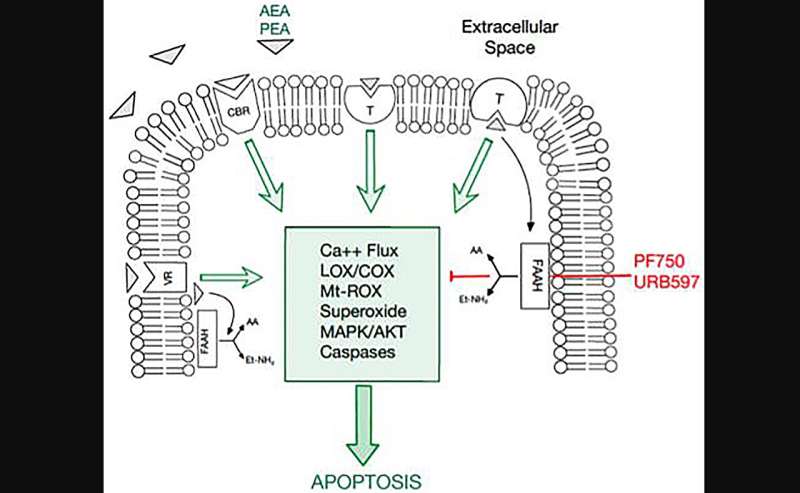This article has been reviewed according to Science X's editorial process and policies. Editors have highlighted the following attributes while ensuring the content's credibility:
fact-checked
peer-reviewed publication
proofread
FAAH inhibition ameliorates murine breast cancer: Study

A new research paper titled "FAAH inhibition ameliorates breast cancer in a murine model" has been published in Oncotarget.
Breast cancer is the leading cancer among females worldwide. Disease outcome depends on the hormonal status of the cancer and whether or not it is metastatic, but there is a need for more efficacious therapeutic strategies where first line treatment fails. In this new study, researchers Mallika Tripathy, Amy Bui, Jared Henderson, Jeffrey Sun, Christian Rutan Woods, Soumya Somani, Thao Doan, Anto Sam Crosslee Louis Sam Titus, and Chandra Mohan from the University of Houston's Department Biomedical Engineering examined Fatty Acid Amide Hydrolase (FAAH) inhibition and endocannabinoids as therapeutic alternatives.
"This study explores the functional relevance and therapeutic potential of FAAH inhibition combined with the proapoptotic activity of exogenous endocannabinoids on breast cancer survival," write the authors.
FAAH is an integral membrane enzyme that hydrolyzes endocannabinoids, rendering them inactive, and FAAH inhibition is predicted to increase cancer cell death. To test this, breast cancer cells were probed for FAAH expression using Western blot analysis, treated with FAAH inhibitors, exogenous endocannabinoids, and combinations of the two treatments, and assessed for viability. High levels of FAAH were observed in different breast cancer cell lines.
FAAH inhibition was more effective than exogenous endocannabinoid treatment, and the combination of FAAH inhibitors and endocannabinoids was the most effective in inducing apoptosis of breast cancer cells in vitro. In addition, in vivo FAAH inhibition reduced breast cancer growth in immunodeficient mice. Further research exploring the therapeutic potential and impact of FAAH expression on cancer cells is warranted.
"FAAH inhibition is a promising approach, and tremendous progress has been made in the field to validate this mechanism as an alternative to chemotherapy," the authors conclude.
More information: Mallika Tripathy et al, FAAH inhibition ameliorates breast cancer in a murine model, Oncotarget (2023). DOI: 10.18632/oncotarget.28534




















